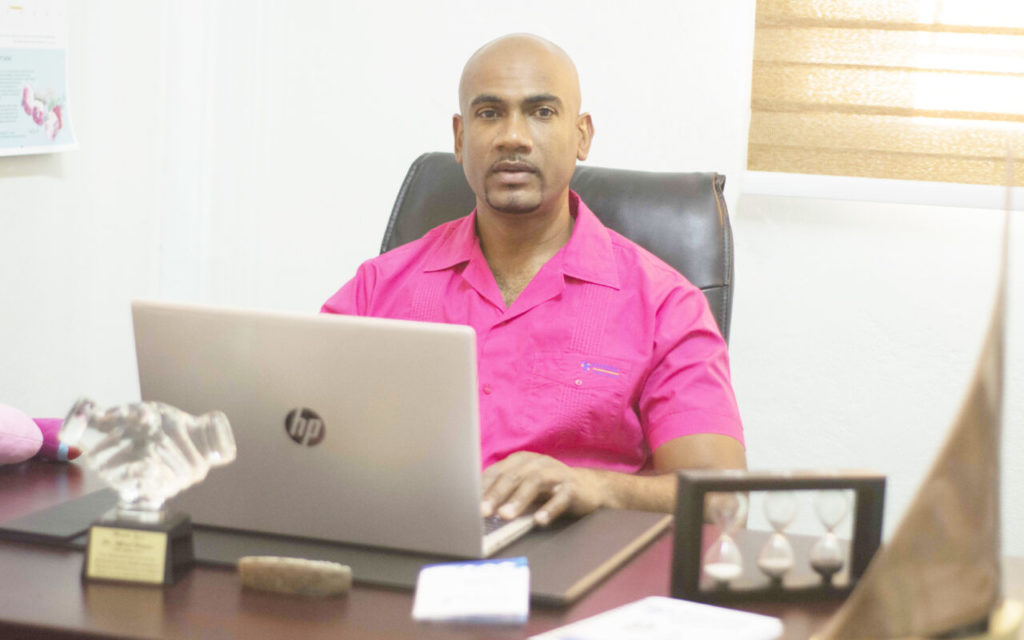

With the recent rise in COVID-19 cases, Dr Alfred Dawes is arguing that the existing plan for tackling the virus has not been effectively utilised in the island.
Despite the recent rise in case numbers, Dawes does not believe the implementation of another islandwide lockdown is necessary. Instead, he told Our Today that the focus should be shifted to treating COVID, identifying the vulnerable and preventing the progression to serious disease.
In order to achieve this, the founder and CEO of the Windsor Wellness Centre said there is a well laid out plan to which the country ought to adhere.
COVID-19, according to Dawes, has three clear phases – the viral replication phase, the early pulmonary phase and the late pulmonary phase.

The viral replication phase speaks to the reproduction of the virus in the body.
“That is when you are getting the cough, the cold, the fever, some people may even get diarrhea,” Dawes explained.
Following the viral replication phase, around day six or day seven, if there is significant damage to the lung, there will be an oxygen deficit.
“If at that time you don’t catch it early, then you will continue to have what you call silent hypoxia while your lung function continues to get worse because of the inflammation that the virus caused, even if you have cleared the body of the virus.”
Subsequent to this, the body will enter the late pulmonary phase, where high flow oxygen is required and admittance to the intensive care unit (ICU) or some form of hospitalisation becomes necessary to treat possible multi-organ failure.

However, he believes that the latter phase can be curbed if the virus is tackled when matriculating from the first phase to the second phase. If done, this will decrease the chances of progression to the third stage. Dawes, in presenting a solution, recommended the use of a pulse oximeter to avoid the late pulmonary phase.
“If you pick up that transition from the viral replication phase to the early pulmonary phase, with a pulse oximeter which is a cheap, easy to use device, then you can start steroids that have been shown to be very effective in decreasing the chances of progression to serious lung damage and that is where we ought to be looking now.”
He continued, saying: “If you can pick up your oxygen levels falling, a cut off of 94 per cent, even before you start to feel short of breath and you start oxygen and start steroids the chances of you progressing to severe lung disease and requiring ICU care is diminished significantly.”
Dawes stands firm in his belief that every home should have a pulse oximeter and, once someone tests positive, they should obtain a pulse oximeter.
“That’s something we believe in, so much at Windsor that we’re giving all patients who test positive at Windsor a pulse oximeter, because we believe that this could be the difference between life and death. So that is how we ought to be looking at the treatment from now on,” he explained.
Aside from being issued to persons testing positive at the Windsor Wellness Centre, pulse oximeters are also available for purchase in select pharmacies and are used in hospitals.







Comments